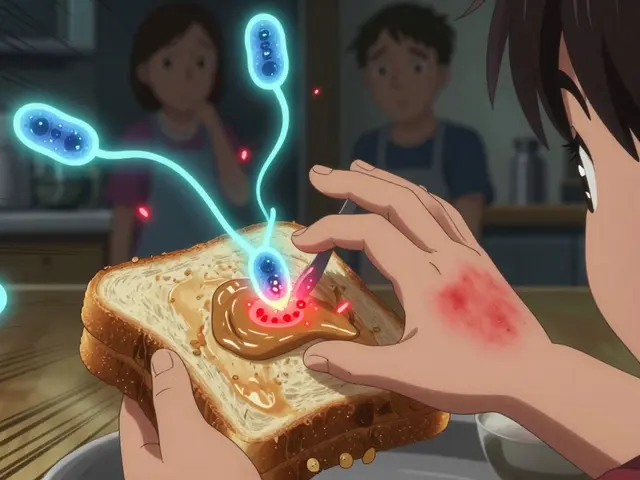Introduction to Transient Ischemic Attack in Young Adults
A transient ischemic attack, or TIA, is commonly referred to as a "mini-stroke" because it resembles the symptoms of a stroke but typically lasts only a few minutes or hours. Although TIAs are more common among older adults, young adults can also experience them. In this article, we will discuss the causes, symptoms, and prevention strategies for transient ischemic attack in young adults. By understanding this condition, you can take steps to reduce your risk and maintain your overall health.
Understanding the Symptoms of a Transient Ischemic Attack
Recognizing the symptoms of a transient ischemic attack is essential for young adults, as this can help in seeking prompt medical attention. The symptoms of a TIA are similar to those of a stroke and may include sudden numbness or weakness on one side of the body, slurred speech or difficulty speaking, loss of balance, dizziness, severe headache, and vision changes. These symptoms are usually temporary and resolve on their own within a few minutes to hours. However, it is crucial to seek medical help immediately, as a TIA can be a warning sign of a future stroke.
Causes of Transient Ischemic Attack in Young Adults
Several factors can contribute to the development of a transient ischemic attack in young adults. Some common causes include:
Blood Clots
Blood clots are the most common cause of TIAs. They can form in the heart or other parts of the body and travel to the brain, blocking blood flow and causing a TIA. Conditions that increase the risk of blood clots, such as atrial fibrillation, can also increase the risk of a TIA.
Arterial Dissection
Arterial dissection refers to a tear in the inner lining of an artery, which can cause blood to pool and form a clot. This clot can then travel to the brain and block blood flow, leading to a TIA. Young adults may be at risk for arterial dissection due to trauma or injury to the neck or head.
Vasculitis
Vasculitis is an inflammation of blood vessels, which can cause them to narrow or close off, restricting blood flow to the brain and leading to a TIA. Certain autoimmune diseases, such as lupus, can cause vasculitis in young adults.
Drug and Alcohol Use
Excessive drug and alcohol use can contribute to the risk of a TIA in young adults. Substances like cocaine can cause a temporary narrowing of blood vessels, while alcohol can increase the risk of blood clots.
Reducing the Risk of a Transient Ischemic Attack
There are several steps that young adults can take to reduce their risk of experiencing a transient ischemic attack. These include:
Maintaining a Healthy Lifestyle
Eating a balanced diet, exercising regularly, and maintaining a healthy weight can help to reduce the risk of developing blood clots and other conditions that can lead to a TIA. Limiting alcohol consumption and avoiding illicit drug use is also essential.
Managing Medical Conditions
Young adults with medical conditions that increase their risk of a TIA, such as atrial fibrillation or lupus, should work closely with their healthcare providers to manage their conditions and reduce their risk of complications.
Monitoring Blood Pressure
High blood pressure can contribute to the risk of a TIA. Regularly monitoring blood pressure and taking steps to lower it if necessary, such as through lifestyle changes or medication, can help to reduce this risk.
Quitting Smoking
Smoking is a significant risk factor for TIAs and other vascular diseases. Quitting smoking is one of the most effective ways to reduce the risk of a TIA in young adults.
Recognizing the Importance of Prompt Medical Attention
If you or someone you know experiences the symptoms of a transient ischemic attack, it is crucial to seek medical attention immediately. Even though the symptoms may resolve on their own, a TIA can be a warning sign of a future stroke. Prompt evaluation and treatment can help to identify and address any underlying risk factors, reducing the risk of a more severe event in the future.
Conclusion
Transient ischemic attacks in young adults may not be as common as in older individuals, but they can still pose a significant risk to health. By understanding the causes, symptoms, and prevention strategies, young adults can take steps to reduce their risk and maintain their overall well-being. If you suspect that you or someone you know has experienced a TIA, seek medical attention immediately to address any potential risk factors and prevent future events.






20 Comments
Mike Brindisi
May 13, 2023TIAs in younger folks are basically a warning sign that something is off with the blood flow you should watch your diet avoid stimulants and get regular checkups
Steven Waller
May 17, 2023It helps to think of a TIA as a brief interruption in the brain's communication system, a momentary pause that reminds us how fragile our health can be. By embracing lifestyle changes we empower ourselves to reduce that risk.
Puspendra Dubey
May 20, 2023Yo man this article is like a deep dive into the abyss of brain mysteries 😱 i feel like the universe is whispering about blood clots and neck injuries, totally mind‑blowing!
Shaquel Jackson
May 24, 2023Honestly I dont care about another health article.
Tom Bon
May 27, 2023While maintaining a balanced diet and regular exercise, it is also prudent to monitor blood pressure and avoid tobacco use. Collaboration among healthcare providers and patients yields the best preventive outcomes.
Clara Walker
May 31, 2023Did you ever notice how the media never mentions that the pharma industry pushes certain “risk factors” to sell more medication? It’s all a big orchestration to keep us dependent.
Jana Winter
June 3, 2023There are several grammatical errors in the original text: "risk factor" should be pluralized consistently, and “substances like cocaine can cause a temporary narrowing of blood vessels” needs a comma before “while”. Proper punctuation improves readability.
Linda Lavender
June 7, 2023The phenomenon of transient ischemic attacks in the demographic we colloquially term "young adults" represents not merely a clinical curiosity but a profound indictment of contemporary lifestyle choices, and it is incumbent upon us to interrogate the sociocultural matrix that engenders such pathophysiology. First, one must consider the insidious role of dietary excess; processed sugars and saturated fats infiltrate the vascular endothelium, precipitating a cascade of endothelial dysfunction. Second, the ubiquity of sedentary occupations, compounded by pervasive screen time, engenders a milieu of hypercoagulability. Third, the specter of illicit stimulant use-cocaine, methamphetamine, and their ilk-creates acute vasospasm, dramatically increasing the propensity for embolic events. Fourth, genetic predispositions, though immutable, can be mitigated through vigilant medical surveillance, particularly in families with histories of atrial fibrillation or autoimmune vasculitis. Fifth, psychosocial stressors, often dismissed as trivial, exert a tangible influence on blood pressure variability and inflammatory markers. Sixth, the pervasive habit of tobacco consumption remains a cardinal modifiable risk factor, its nicotine-induced vasoconstriction and pro‑thrombotic effects well documented. Seventh, sleep deprivation, a hallmark of modern existence, disrupts circadian regulation of blood pressure and coagulation pathways. Eighth, chronic alcohol excess, while socially tolerated, contributes to atrial arrhythmias and coagulopathy. Ninth, inadequate access to preventive healthcare services impedes early detection of pre‑stroke conditions. Tenth, the prevalence of non‑adherence to antihypertensive regimens culminates in uncontrolled hypertension, the most potent risk factor for cerebrovascular events. Eleventh, emerging evidence implicates gut microbiome dysbiosis in systemic inflammation, a novel frontier warranting further exploration. Twelfth, the intersection of obesity and metabolic syndrome creates a pro‑inflammatory environment conducive to atherogenesis. Thirteenth, the lack of public health education regarding warning signs leads to delayed medical attention, exacerbating outcomes. Fourteenth, the role of environmental pollutants, such as particulate matter, in endothelial injury cannot be overlooked. Finally, a concerted effort encompassing lifestyle modification, pharmacologic intervention, and community awareness is essential to curtail the rising incidence of TIAs among those under the age of forty.
Jay Ram
June 10, 2023Hey folks, staying active and keeping that heart pumping is the best insurance policy you can buy-let's keep moving!
Elizabeth Nicole
June 14, 2023Great info! Remember, even small steps like adding a fruit to your breakfast can make a big difference in your overall risk profile.
Dany Devos
June 17, 2023The article presents the facts in a clear manner, yet it could benefit from citing recent epidemiological studies to substantiate its claims.
Sam Matache
June 20, 2023This piece glosses over the real impact of illicit drugs on cerebrovascular health-far too superficial for anyone looking for depth.
Hardy D6000
June 24, 2023While everyone is shouting about lifestyle, the real story is how government health policies neglect early screening for young adults-just another example of systemic failure.
Amelia Liani
June 27, 2023I totally hear you, and it’s important to remember that each personal story adds weight to the broader conversation about health and prevention.
shikha chandel
July 1, 2023They hide the truth.
Zach Westfall
July 4, 2023Whoa the cascade of risk factors is like a domino effect and if you think about it the brain is just a fragile organ that can be saved with simple steps
Pranesh Kuppusamy
July 8, 2023One might contemplate the metaphysical implications of a transient ischemic episode as a fleeting glimpse into the impermanence of corporeal existence, prompting a re‑evaluation of one’s health priorities.
Crystal McLellan
July 11, 2023Don’t trust the mainstream advice-they’re part of the agenda to keep us complacent while the elite profit from chronic disease.
Kelly Thomas
July 15, 2023Take heart! Combining vibrant whole foods, regular cardio, and a splash of mindfulness can turn the tide against TIA risk-your brain will thank you.
Mary Ellen Grace
July 18, 2023Wow that was a thorough read, Linda! I love how you broke everything down into bite‑size pieces-makes it easier to actually do something about it.